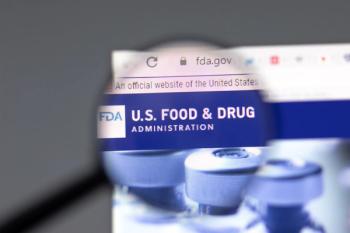
Results Point to Need for Ways to Manage Social Anxiety That Accompanies Parkinson Disease
Researchers found that the degree to which a person with idiopathic Parkinson disease engages in these avoidance tactics—such as putting a hand in the pocket to hide a tremor—is moderately predictive of social anxiety. The trouble is, such strategies may make anxiety worse, and patients can develop social anxiety disorder.
Results from a small study of patients with idiopathic Parkinson disease (IPD) show that negative social cognitions and safety seeking behavior are strongly associated with social anxiety in patients with IPD; in fact, rising levels of these negative thoughts and behaviors are more strongly linked to social anxiety than even the symptoms of the disease triggering them.
The study of 124 adults with IPD by researchers from the University of Bath in the United Kingdom is the first to demonstrate how the how negative cognition, more so than symptoms of IPD itself, drive social anxiety that can drive people with IPD to take added steps to hide symptoms or to avoid situations in which they might exhibit a behavior caused by IPD that would be noticeable to others, such as carrying a tray off food.
Researchers found that the degree to which a person with IPD engages in these avoidance tactics—such as putting a hand in the pocket to hide a tremor—is moderately predictive of social anxiety. The trouble is, such strategies may make anxiety worse, and patients can develop social anxiety disorder.
“This is consistent with a cognitive behavioral understanding of [social anxiety disorder], where thoughts about oneself can drive behavioral responses intended to reduce social anxiety but actually exacerbate it,” the researchers found.
Patients with IPD report “a range of mental health problems” that can include generalized anxiety, low mood, and social anxiety, the latter being among the most prevalent. A prior study found that 42.5% of people with IPD met diagnostic criteria for social anxiety disorder.
Among those with IPD , symptoms of social anxiety disorder can be similar to that experienced by people who have a constant trait, such as a scar or prominent birth mark, that causes them to look differently from others. Because the physical symptoms of IPD can manifest in a variety of ways, from a change in walking patterns to posture, movement or even facial expressions, the degree of social anxiety can differ, too.
But results from the interviews with the 124 patients showed that it was not the physical symptoms triggering the variance in social anxiety, but rather the negative cognition that patients experienced in anticipation of some physical response. Non-motor traits of IPD such as sensory and sleep changes, which have previously received less attention, are being recognized as important signs that should be addressed.
In this study, the 124 patients were asked to complete self-report questionnaires that included measures of Parkinson’s disease severity, social anxiety, negative social cognitions, safety-seeking behaviors, internally focused attention, anxiety, and depression.
Researchers developed a model to pinpoint causes for social anxiety behaviors, and their model was able to account for 71.6% of the behaviors reported by the people taking the questionnaire. Cognitive behavior variables predicted 43.5% of the variance in social anxiety, while sex, anxiety and depression accounted for 23.4%. Parkinson non-motor symptom severity accounted for 4.7%.
“Negative social cognitions and safety-seeking behaviors were statistically significant predictors, while an internal focus of attention was not,” the authors found.
They called for additional research that would measure such behavior in greater detail, and find out whether specific IPD symptoms are more likely to trigger safety-seeking behavior. Patients could be treated much sooner for what the authors called “understandable mental health responses to a challenging physical condition.”
Reference
Nash K, Dysch L, Jones JT, MacQueen R, Marks E. The contribution of cognitive behavioural factors to social anxiety in Parkinson’s disease. Behav Cogn Psychother. Published Septembe 7, ,2021. doi: 10.1017/S1352465821000291.
Newsletter
Stay ahead of policy, cost, and value—subscribe to AJMC for expert insights at the intersection of clinical care and health economics.








